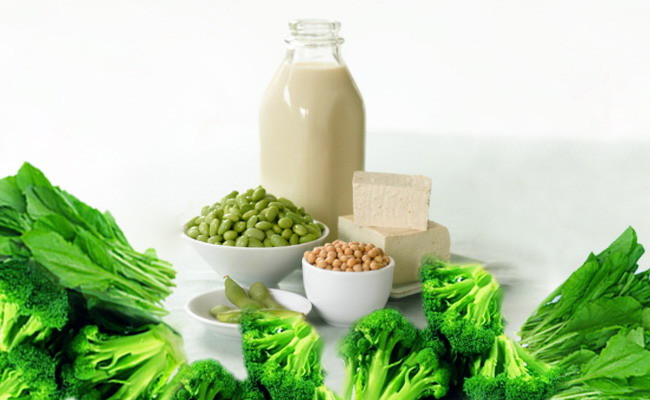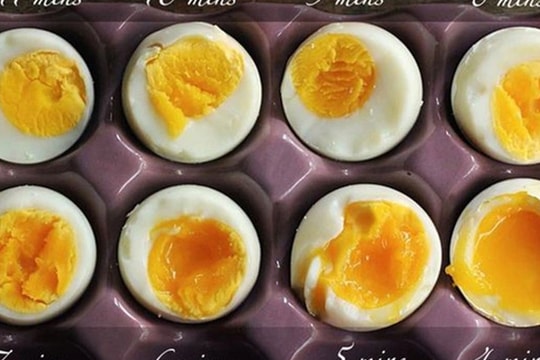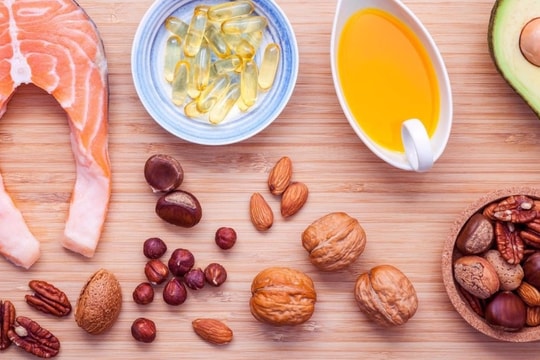5 essential nutrients for women
If you regularly maintain a balanced diet, your body will have enough essential nutrients.
If you maintain a balanced diet regularly, your body will have enough essential nutrients. However, women's bodies are always affected by many factors throughout their lives such as menstruation, menopause, pregnancy and fluctuating hormone levels during each period of life. These factors affect the needs of certain important nutrients in the woman's body.
Calcium
If we take care of and supplement our bones from a young age, the risk of osteoporosis (also known as brittle bone disease) will be significantly reduced in old age. Osteoporosis is a common disease in the elderly. Bones continue to grow at a high density until the teens and 20s. After the age of 35, bone density gradually decreases and further decreases without a good supply of calcium.
 |
| Foods rich in folic acid are essential for women. |
For women over 35, it is extremely important to continuously supplement calcium and vitamin D to keep bones strong. In addition, it is necessary to avoid foods and drinks that can affect the body's calcium absorption.
Milk is recommended as the best source of calcium but there are other sources if the body is lactose intolerant such as small bony fish (sardines, anchovies), green leafy vegetables, soy milk, tofu, almonds and seeds such as sesame seeds and sunflower seeds...
After menopause, the body absorbs calcium less well, so it may be necessary to increase your intake of foods containing calcium.
If you need to take calcium supplements, consult your doctor or health care professional. The two main forms of calcium in supplements are carbonate and citrate. Calcium carbonate is best absorbed when taken with food, while calcium citrate is best absorbed when taken with or without food. Older people often do not have enough stomach acid to absorb calcium carbonate, so those over 65 should take calcium citrate in combination with vitamin D for optimal osteoporosis prevention.
Folic acid
Folic acid or folate (vitamin B9) is extremely important during pregnancy to prevent neural tube defects such as spina bifida. Because the spinal cord is formed in the first 12 weeks, folate is important in the early stages of pregnancy, even weeks before pregnancy, which is why all women of childbearing age should take supplements. Folate is also good for the immune system, energy production, helps prevent anemia, and can also help protect against heart disease and stroke, so it is always good for women to have a diet containing enough folate.
Women of childbearing age should supplement with 400mcg of folate daily, and pregnant women need a total of 700mcg during the first 12 weeks of pregnancy.
People with malabsorption diseases (Crohns, celiac) are prone to severe folic acid deficiency. When taking folic acid supplements, combine them with B12 for best results.
 |
| Milk supplements calcium for women. |
Magnesium
Magnesium is important for a number of bodily functions. It helps the body cope with stress, produce enough energy, and build strong bones. It is also good for the muscles and nervous system. Research shows that low magnesium intake may be linked to type 2 diabetes, osteoporosis, and migraines. Symptoms of magnesium deficiency include muscle spasms, cramps, lethargy, poor memory, and sleep disturbances.
The amount of magnesium needed by the body is 375mg. Magnesium is almost lost during food processing. A diet rich in magnesium includes green vegetables, beans, nuts, seeds and unrefined (brown)...
A study published in the American Journal of Women's Health found that daily supplementation of 200 mg of magnesium reduced menopausal symptoms, water retention, breast pain, and bloating by up to 40%.
Omega-3
Fish oil contains one of the most beneficial types of fat: omega-3 fatty acids. Omega-3 fats are essential for baby's brain development and are an important nutrient for pregnant women. Omega-3 fats also keep adult hearts healthy and reduce the risk of stroke, helping to reduce the risk of dementia and Alzheimer's disease.
Iron
Studies around the world show that on average, 1 in 4 women have low blood iron reserves. Iron is essential for the production of hemoglobin, which carries oxygen from the lungs throughout the body. Iron deficiency can make you feel tired, unable to concentrate and increase the risk of infection.
Women need a minimum of 14.8mg of iron per day. Postmenopausal women often have low iron intakes of about 8.7mg/day, which is not enough to help the body produce healthy red blood cells. The result is iron deficiency anemia, which causes weakness, fatigue, and paleness.
Women who work hard and who do not eat meat should consider taking iron supplements as directed by their doctor. However, excessive iron intake can cause constipation. Iron is best absorbed when taken on an empty stomach, alongside meals, and drinks rich in vitamin C help increase iron absorption.
According to Suckhoedoisong
| RELATED NEWS |
|---|







